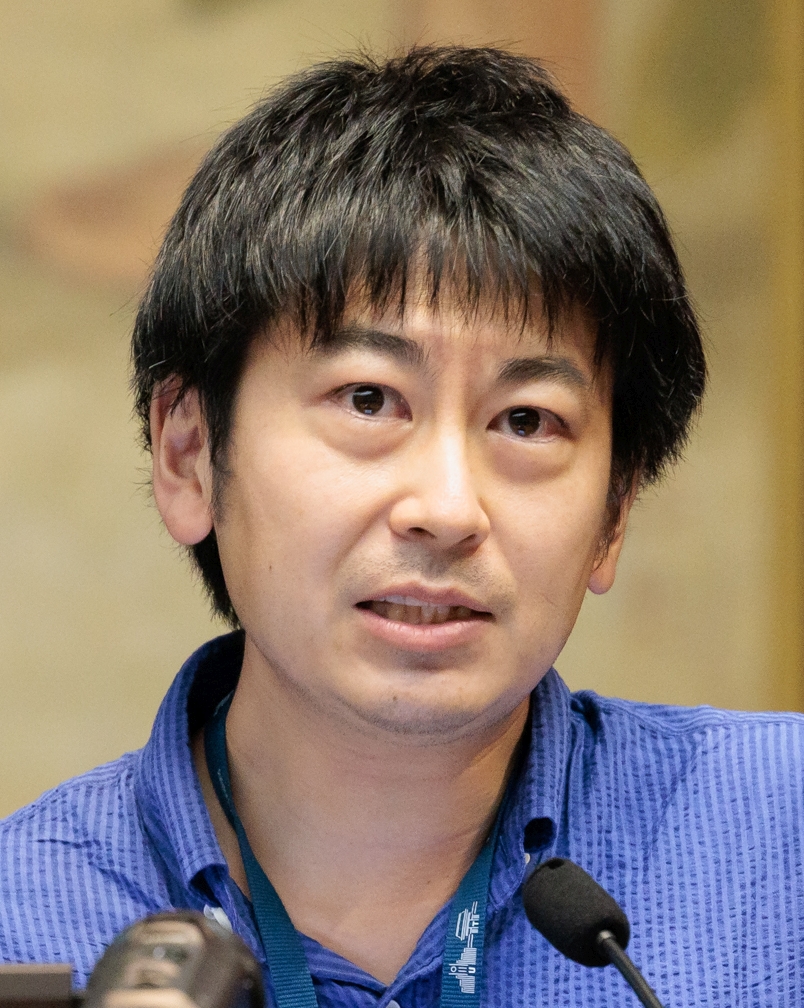Disclaimer: machine translated by DeepL which may contain errors.
International Physics Olympiad 2023 Japan "Behind the Scenes" Experience
Kazumasa Takeuchi, Associate Professor, Department of Physics

" Can you help me? " In February 2021, I received an e-mail from Dr. Ryugo Hayano (Professor Emeritus Professor of Physics, The University of Tokyo). He asked me if I would like to be a member of the entry committee for the International Physics Olympiad (IPhO) 2023 in Japan. I was also invited in 2016, but I turned it down because I had not yet set up my laboratory at that time. Thus began my confidential work as a member of the IPhO 2023 Examination Committee.
IPhO is one of the so-called International Science Olympiads, mainly for high school students. I myself have never been involved in IPhO in the past. However, the IPhO is known for its excellent questions from all genres, ranging from familiar phenomena to cutting-edge research. For example, the theoretical questions for the 2018 Congress in Portugal were on LIGO, neutrinos, and the physics of biological tissue. Was I up to the task? With a hint of apprehension, I began to compose the questions at the monthly scientific committee meetings. I was in charge of theoretical problems, but the professors in charge of experiments had started work on them five years earlier, and by the time I joined the committee, they were already in the prototype stage of experimental models for mass production.
 IPhO2023 immediately after the experimental test. The gymnasium at the National Olympics Memorial Youth Center was used.
IPhO2023 immediately after the experimental test. The gymnasium at the National Olympics Memorial Youth Center was used.The project was a series of failures. It took about half a year to formulate the model, and I was amazed at how quickly a certain colleague of mine who joined the team was able to create an attractive problem in no time at all. After a year and a half of work, including the implementation of mock tests, the creation of an English version, and the reduction of the number of words, the Scientific Committee was able to complete the set of questions. ...it was supposed to be done.
On Monday, July 10, 2023, IPhO 2023 opened. There is still a big mountain to climb: the International Board Meeting. On the day before the examination (!), the IPhO held a meeting with the members of each country to discuss the issue of the examination. On the day before the examination (!), the IPhO presents the examination questions to the members of each country, discusses what needs to be revised (the questions themselves may be shot down...!), and then, after a resolution vote, the members of each country vote to approve the examination. After a vote on the resolution, the national committee members work on the translations (overnight, depending on the country). The day of the board meeting on the experimental problem conducted prior to the theory. When I opened my computer in my room at the university, I saw a message from the chair of the theory committee: "An emergency has occurred. There is an emergency situation. We had prepared for each problem with the understanding that each problem would be 12,000 words, but it seemed that the three theory problems would be 12,000 words in total. We finished.
I don't remember much after that. The IPhO statutes state that the competition should be conducted in the spirit and tradition of the IPhO. I understood that the heart of this is to give maximum credit to the understanding of physics demonstrated by the competitors, and to steer all parties involved, including the international, local, and national committee members, in concert to achieve this. The fact that the calculation sheets are included in the scoring, and that each country committee member can consult with the scorers regarding the scoring, and if agreement is reached, the score will be changed, are all indications of this. The theoretical question, which ended up being about 20,000 words in total, was successfully answered, perhaps thanks to the spirit of the IPhO, and the content of the question was highly evaluated.
On July 17, the closing ceremony was held. I was not present, but when I turned on the TV in the evening, I saw the smiling faces of the Japanese gold medalists. Ah, for these smiles, for the love of physics of these high school students who show us these smiles, we have come this far. It was a moment that made me feel happy and proud of my job as a university faculty member who accepts such high school students and eventually conducts research together with them.
Note: For the report of the "Table," please refer to the article "IPhO2023 - International Physics Olympiad 2023 in Japan" by Ryugo Hayano, IPhO2023 Scientific Committee Chair, in the Journal of the Physical Society of Japan (to appear in the February 2024 issue). The final report, examination questions, list of committee members, etc. are available on the website https://ipho2023.jp
The Rigaku-bu News collects essay manuscripts. We welcome all submissions, regardless of whether they are self-recommended or not. We especially welcome submissions from Faculty and graduate students. However, the Communications & Public Relations Committee will decide whether or not to publish your essay.Please send your contributions to rigaku-news@adm.s.u-tokyo.ac.jp.
Published in the January 2024 issue of The Rigakubu News


